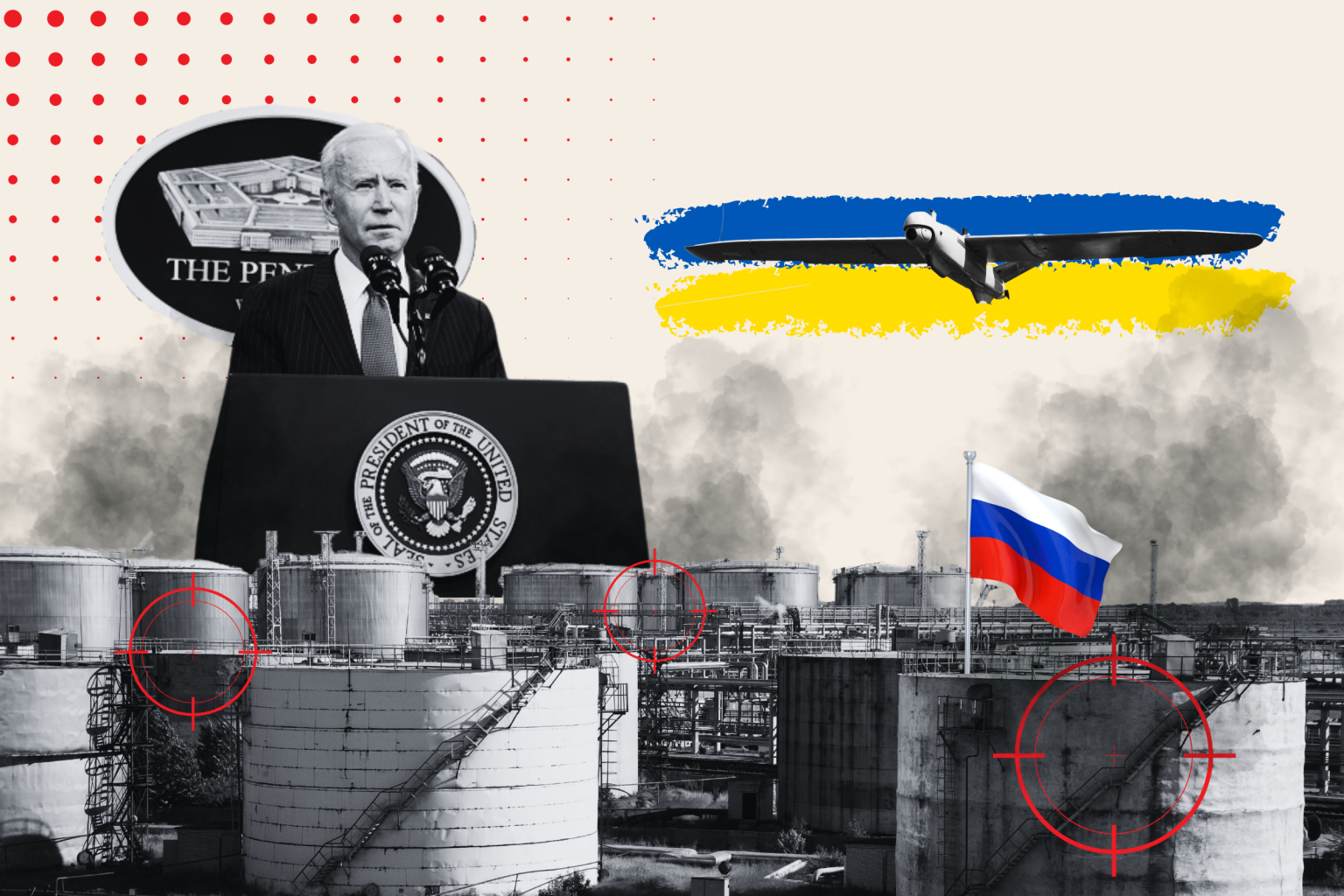The Pentagon’s red line on Ukraine’s drone strikes on Russian energy infrastructure is being scrutinized after an investigation revealed that some targeted oil refineries in Russia have supplied President Vladimir Putin’s military with fuel during the ongoing conflict. Kyiv initiated its drone campaign against Russian refineries in early January, disrupting gasoline production and cutting Moscow’s export revenues. At least 13 successful attacks have been carried out on Russian refineries, disrupting 14 percent of the country’s capacity. While Ukrainian officials have acknowledged that Russian refineries are legitimate military targets, the strikes are typically claimed by the Security Service of Ukraine and Ukraine’s Military Intelligence Directorate.
The U.S. has expressed concern over Ukraine’s targeting of energy facilities, fearing that it could lead to retaliation and increase global oil prices. The warnings come amid this year’s presidential election in the U.S., with gas prices being a sensitive topic during campaigns. U.S. Secretary of Defense Lloyd Austin cautioned against attacks on Russian refineries, mentioning the potential impact on global energy stability. However, Global Witness, a non-governmental organization, argues that the targeted refineries have supplied fuel to Russia’s military, making them legitimate military targets. This has led to calls from lawmakers for authorization to strike strategic targets within Russian territory under certain circumstances.
Investigations by Global Witness have shown that facilities targeted by Ukraine had contracts with Russian military organizations prior to the war and have continued to supply substantial quantities of fuel during the conflict. These refineries supplied fuel to military districts where units active in Ukraine were based. Despite evidence of their involvement in supplying Russia’s army, the companies in question did not respond to requests for comment. Global Witness criticized the Biden administration for prioritizing the flow of Russian oil, even after initially announcing an embargo on Russian crude following the invasion. The organization argues that the U.S. is prioritizing Russian oil exports over supporting its ally Ukraine.
The dispute over the drone attacks highlights the complexities of global fossil fuel economics and the priorities of different geopolitical actors. Global Witness argues that the U.S. is prioritizing the flow of Russian oil to avoid disrupting global oil markets, even though it does not directly purchase fuel from Russia. The NGO criticizes the Biden administration for its stance on targeting Russian refineries, which appears to prioritize maintaining oil supplies rather than supporting Ukraine in its conflict with Russia. While the U.S. initially announced an embargo on Russian crude, it seems to prioritize the flow of Russian oil over supporting Ukraine, reflecting a flawed broader goal to ensure global oil stability.
The situation underscores the challenges of navigating international conflicts and energy interests. The U.S. government’s approach to the Ukraine-Russia conflict in terms of oil supply and military targeting reflects a complex web of political, economic, and security considerations. Global Witness’s findings shed light on the nuances of the situation and raise questions about the Biden administration’s priorities in the conflict. As tensions continue to escalate in the region, the balance between supporting allies, deterring adversaries, and maintaining global energy stability remains a delicate and challenging task for policymakers.


